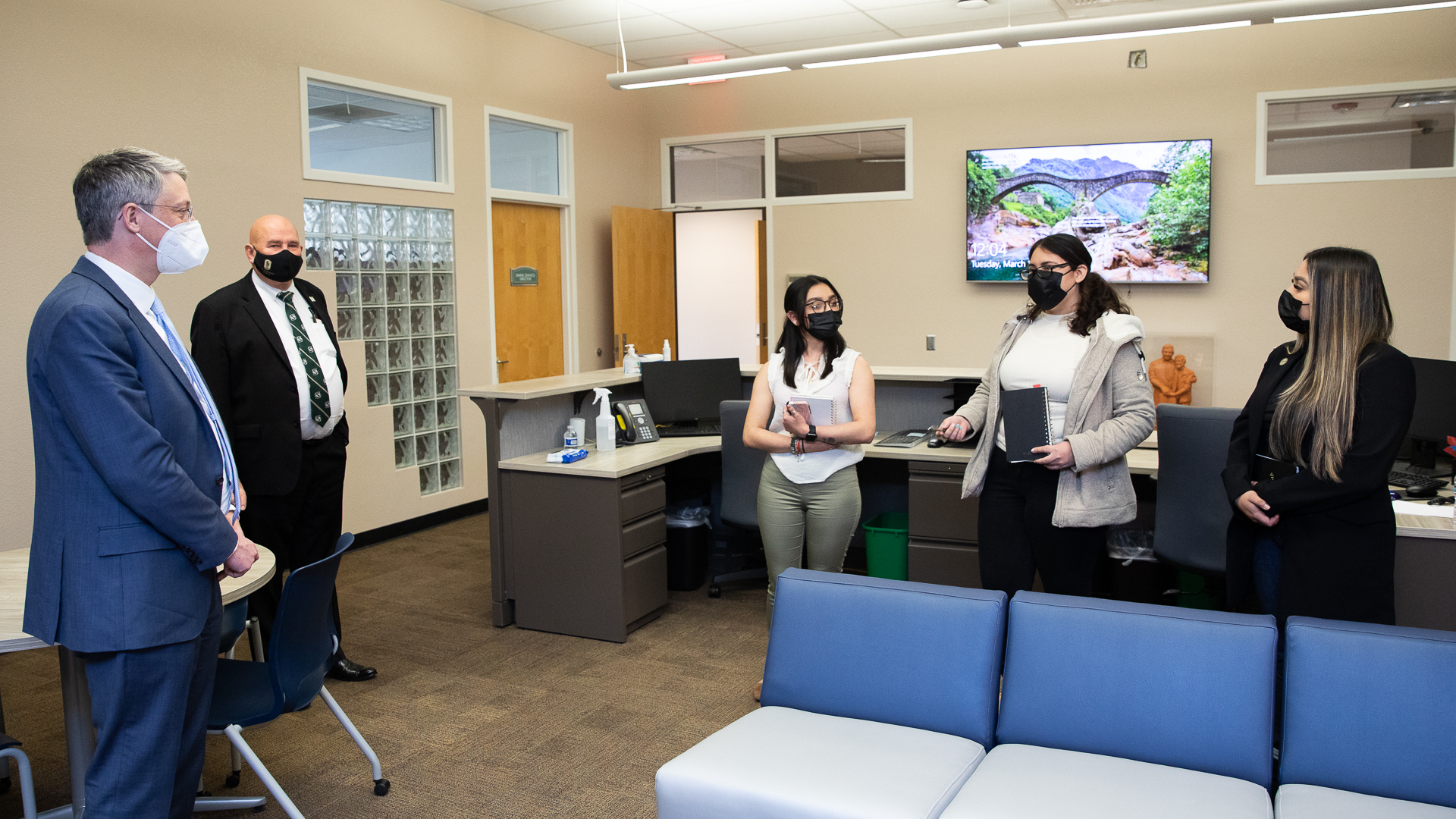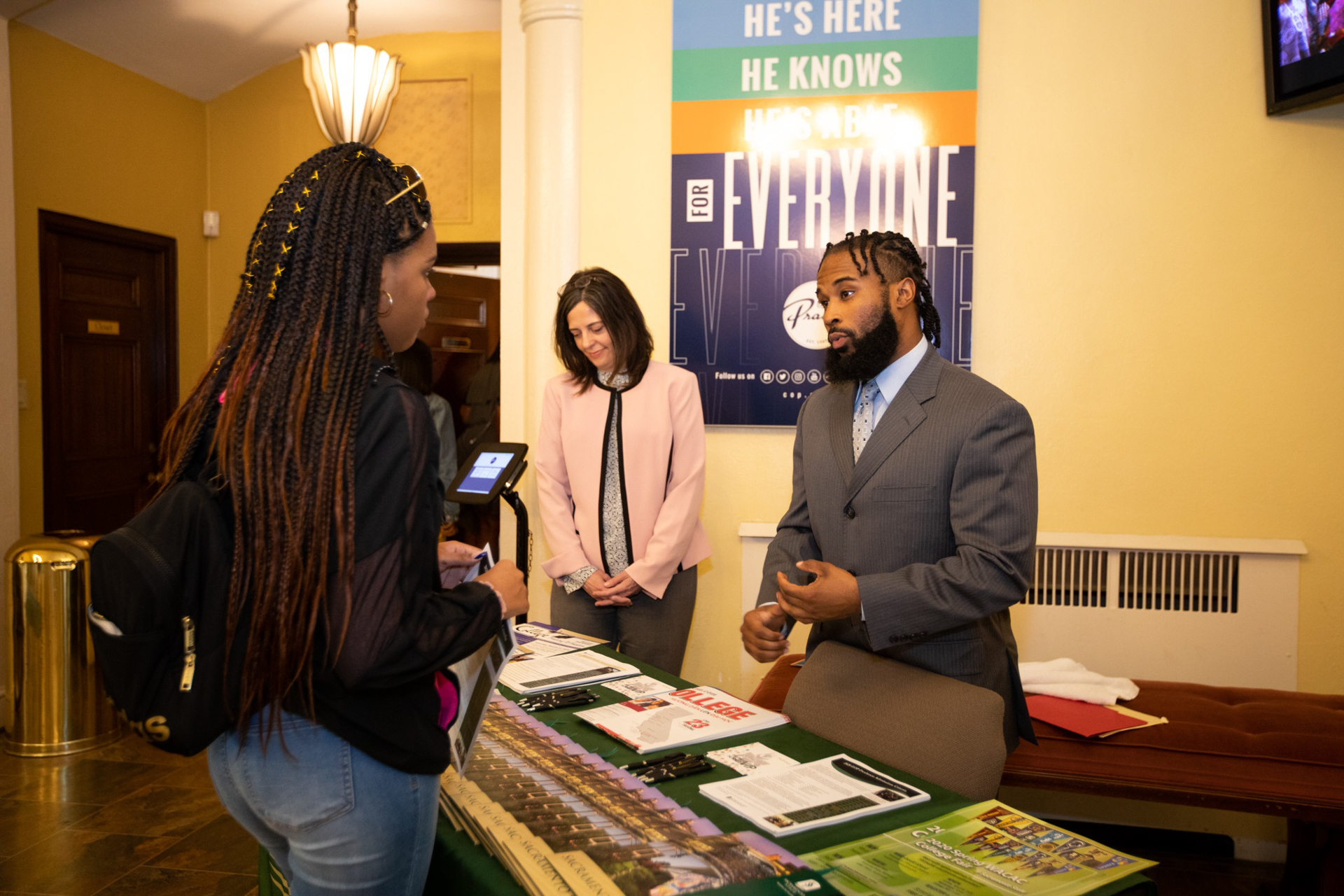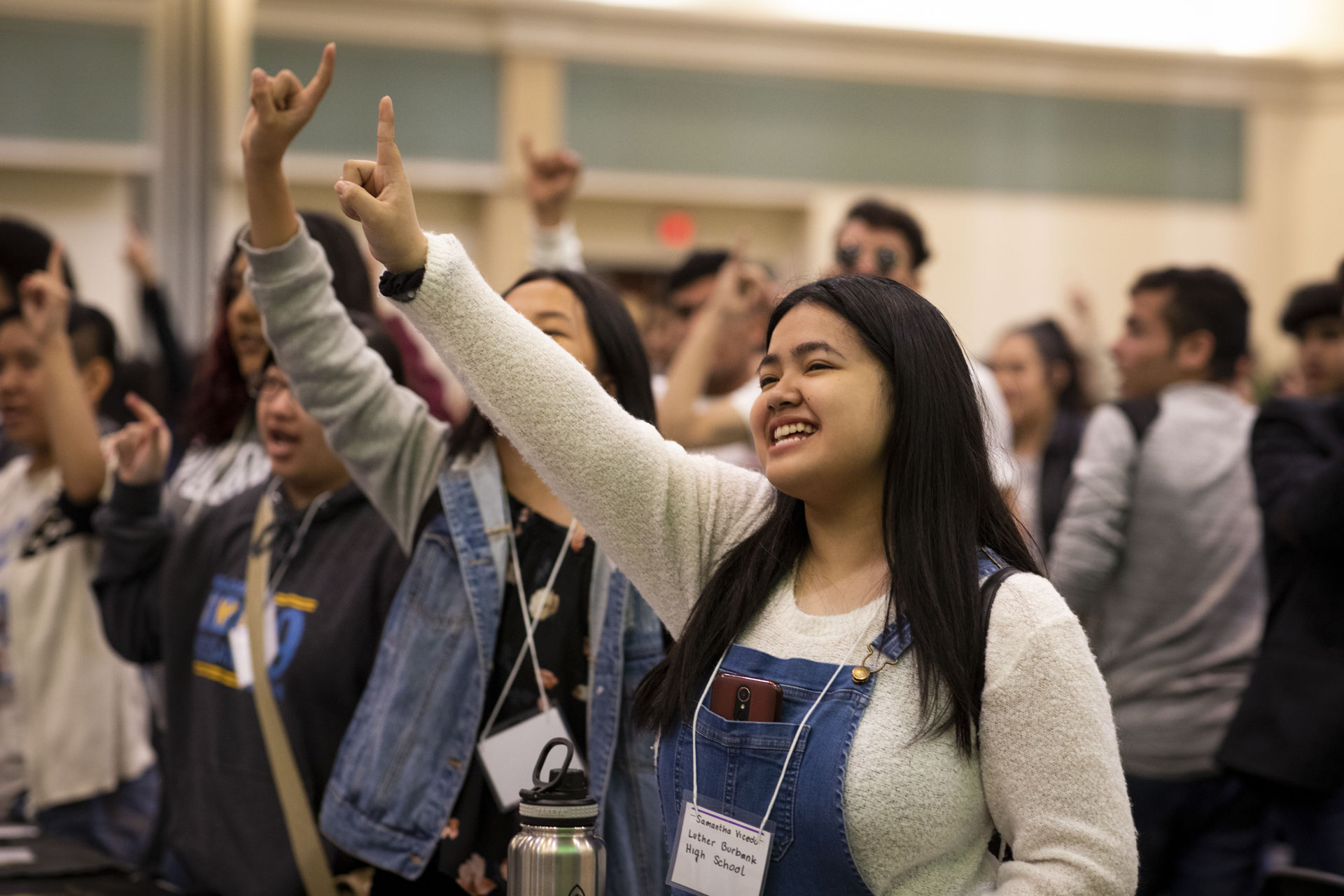Story Content
Moving personal stories, plenty of support arise from Young Males of Color conference at Sac State
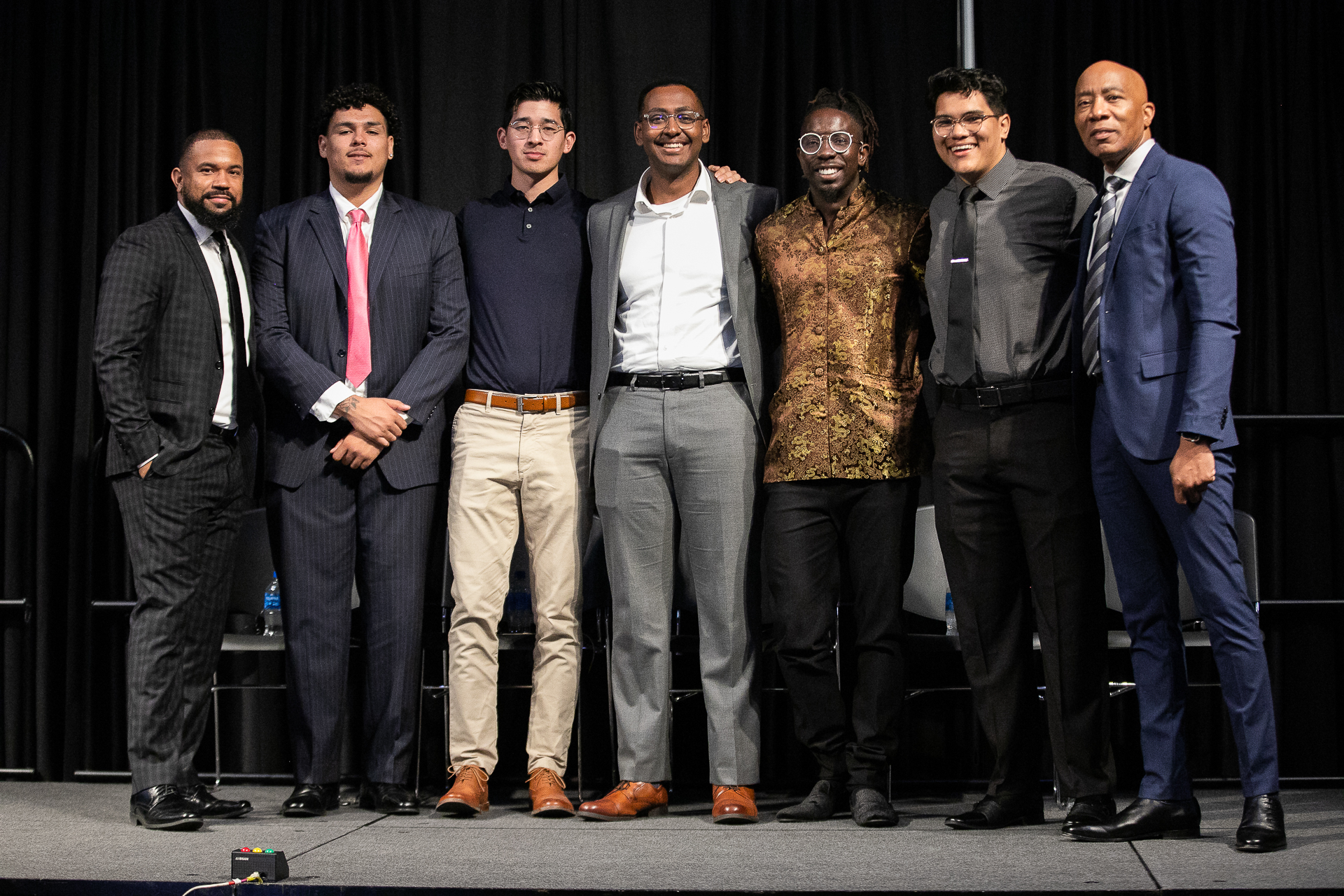
April 11, 2022
They overcame bullying, poverty, violence, and racism in their youths. Through remarkable perseverance, they made it into the CSU system. Now they are thriving.
The four current CSU students and one recent graduate helped kick off the 2022 Young Males of Color Conference, held at Sacramento State April 6-7. The annual conference, which attracted more than 500 students, educators and others from across the CSU and beyond, explored challenges that Black, Latino, Pacific Islander, and Native American young men face in higher education, while also considering programs and approaches that help make success attainable.
“The conference is a wonderful opportunity for the campus to engage its CSU and regional partners in efforts to advance student success and meet the goals” of the system’s Graduation 2025 initiative, said Marcellene Watson-Derbigny, Sac State associate vice president for Student Retention and Academic Success.
The initiative has led to rising graduation rates at Sac State and the CSU, but work continues to close equity gaps – differences between traditionally underserved minority students and their peers.
“I’m here because I wanted to be around other African American men while we look for ways to build ourselves up, and guide the next generation." - Sacramento State student Josiah Greer
A morning discussion featuring CSU students on April 6 opened the conference. The panelists told their personal stories and offered advice for overcoming obstacles to earning a college degree.
Jose Juan Rodriguez Gutierrez, a senior at Cal Poly Humboldt, was born in Mexico and moved to the United States with his parents when he was 8 years old. His family lived in poverty, and he was ridiculed in school for his lack of English. His salvation was a group of close friends who shared his values and desire for better things, he said.
“Surround yourself with toxicity, and you will draw it to you.” Avoid it, and “you will find the light,” said Rodriguez Gutierrez, who will graduate with a degree in Wildlife Management this year.
Malik Campbell, a senior studying Biology at Cal State Northridge, was bullied as one of the few Black students at his high school in Southern California. In college, he found a community that welcomed and guided him, he said.
“Find your safe space and your people,” Campbell advised the group.
Temesghen Ghebreyesus, whose parents are African immigrants, took part in a leadership development program at Cal Poly Pomona, where he studies Engineering. That program led to a good job that will be waiting for him after he graduates later this year.
At Cal Poly, “I found people who understood me and the potential that I have,” he said.
Joselito Flores, a 2021 alumnus of Cal State Bakersfield, was born to a mother who was addicted to drugs and a father who was in and out of prison. His situation, he said, taught him persistence and resilience. Today, he has “a relentless pursuit of knowledge” and a career in business that has brought him prosperity, he said.
“Focus on change,” Flores said. “Focus on making things better. Focus on being the best version of you.”
Lamont Paxton, a Business major at Sonoma State, grew up in the projects in the Watts area of Los Angeles, surrounded by drugs, violence, and guns. He saw his father shot, an image he said “still causes me trauma.” Paxton was the first in his family to attend college, where he took part in a Male Success Initiative that he said was worthwhile.
“I never let anything break me or stop me from achieving my highest potential,” Paxton said.
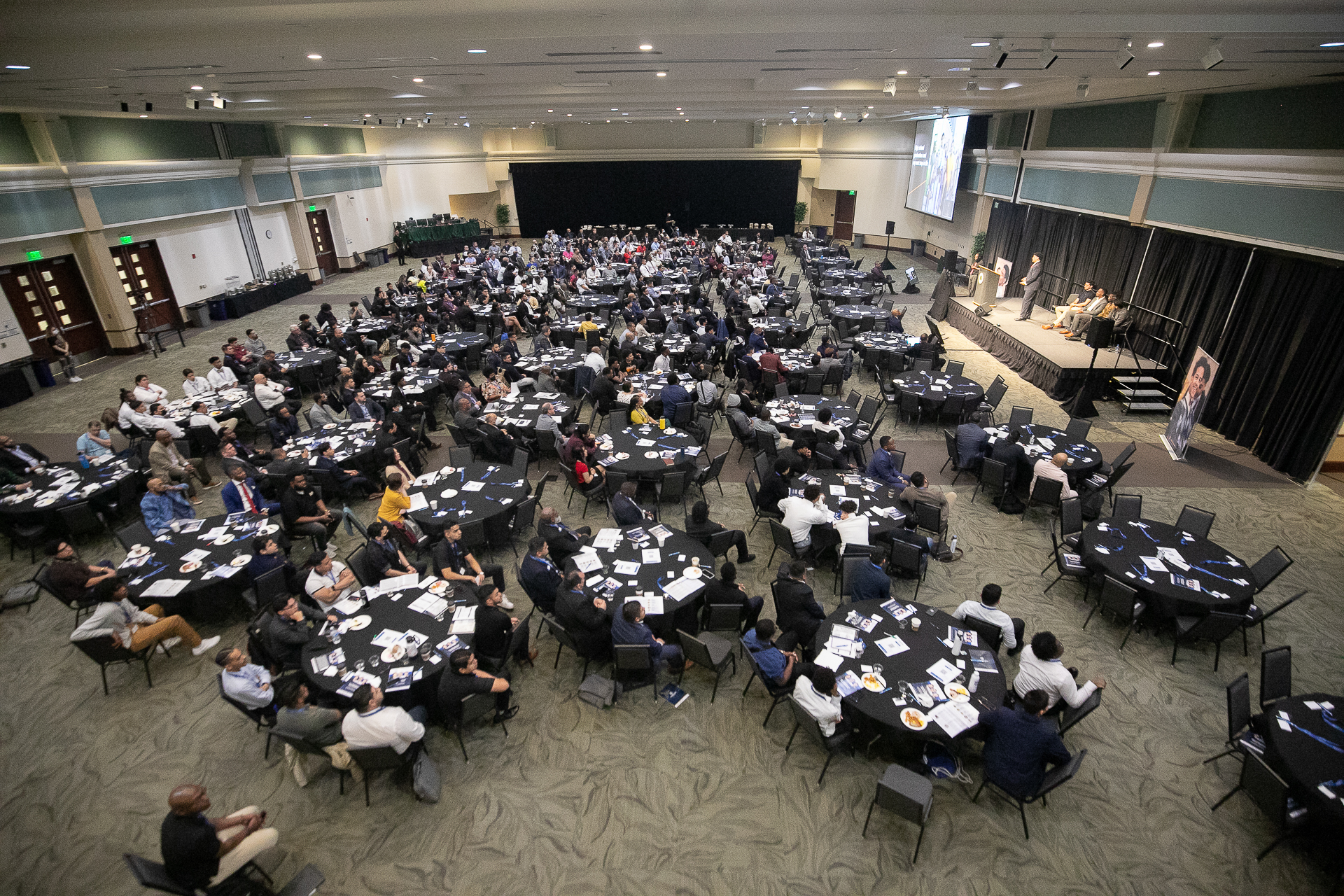
Conference participants also heard from keynote speakers and attended breakout sessions focused on topics such as breaking bad habits, empowerment, successful programs to help Hmong students, and others.
Josiah Greer, who will graduate with a master’s degree in Education from Sac State in May, attended a session focused on reasons many young men of color are reluctant to seek help for mental health issues.
“I’m here because I wanted to be around other African American men while we look for ways to build ourselves up, and guide the next generation,” Greer said. “I’m gaining tools to advocate for change in my community and help that next person succeed.”
Many Black men are taught that showing emotions and accepting mental health diagnoses and treatment are signs of weakness, speaker Christian Abson said. That belief can lead to more stress and symptoms that ultimately interfere with relationships and the pursuit of higher education, he said.
“We need to communicate the need for personal and psychological support,” he said. “We need to give as much attention to our mental health as we do to our physical health.”
Abson, who holds degrees Psychology, Educational Psychology, and Educational Leadership, from three different CSU campuses, encouraged students to seek help from their colleges, where mental health services often are available for free.
Greer said he has sought therapy during difficult times in his life, with positive results.
“I’m an advocate of it,” he said. “Without it, I wouldn’t be as clearheaded as I am now.”
The conference, which was preceded by a reception at the downtown Kimpton Sawyer hotel and a Sacramento Kings game at Golden 1 Center, wrapped up on Thursday afternoon.
William Franklin, vice president of Student Affairs at CSU Dominguez Hills and one of the organizers of the event, said he hopes it will have a lasting impact on participants.
By sharing information and best practices, “we want to empower, equip, rebuild, challenge and celebrate young men of color,” he said.
Media Resources
Faculty/Staff Resources
Looking for a Faculty Expert?
Contact University Communications
(916) 217-8366
communications@csus.edu
